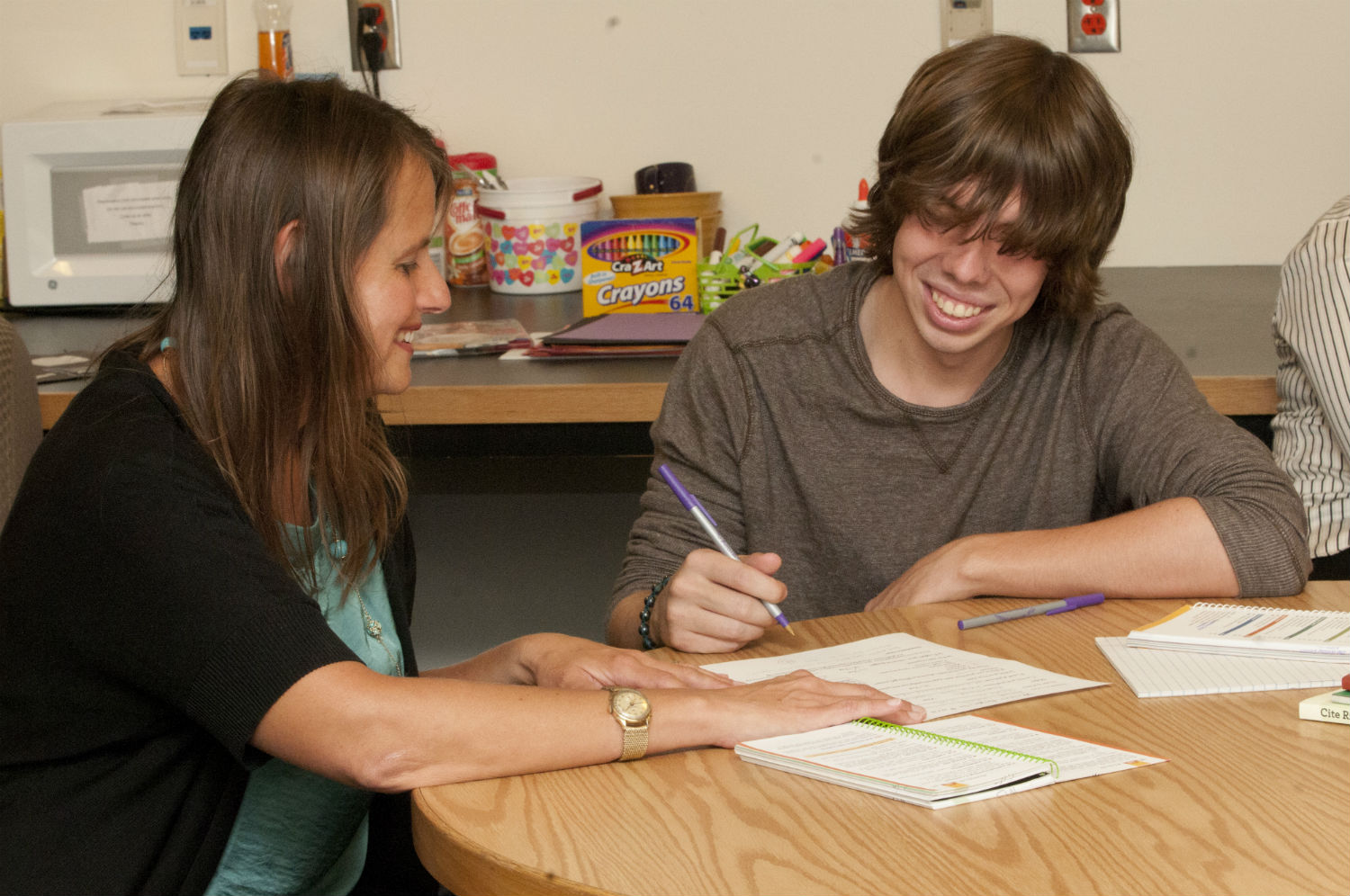Writing and literature professors highly recommend utilizing writing centers, but in the eyes of many students, the paper either doesn’t matter that much or it’s good enough already. Or, quite possibly, it’s due in three hours and not even close to finished.
What should you do? Bring it anyway.
A lot of students hesitate to take advantage of one of their school’s best resources, but the worst that can happen is that you spend half an hour with a peer consultant who gives you terrible suggestions, or who just says, “Yeah, it looks fine.” Even still, that that probably won’t be the case.
Students who work in writing centers are trained to read through papers on multiple levels. Yes, they will look at your grammar and citations, because that’s probably all you think you want out of the meeting. But they will also help you spot grammatical errors in your writing so you don’t get docked those precious ten points from the rubric, and they will help with your citations so you don’t get called out for plagiarism, both of which are incredibly important parts of your paper.
But that’s not all that writing consultants can do for you. If that were the case, the appointment would be five minutes long and a complete waste of your time, as the free version of Grammarly and a visit to the Purdue OWL could help almost as much without you ever having to get out of bed.
Instead, peer writing consultants are also able to look at the structure of your paper—why is it organized this way, and would it be stronger if you talked about your second point first? A little copying and pasting, followed by some quick revisions to transition sentences, and you’re going from fourteen out of twenty to eighteen out of twenty in the rubric’s organization category.
Peer writing consultants can also help you spot awkward sentence structures. Sometimes a sentence that makes perfect sense to the writer will be confusing to everyone else. Unfortunately, that means that it will most likely be confusing to the professor as well. Confusing sentences equal points off the rubric, but writing consultants can help minimize those awkward sentences and get you on your way to a smoothly readable essay.
If you bring in your paper with enough time, consultants can help you identify logical holes or assumptions in your content. This can be especially helpful if your paper is only partially written. If you can find logical problems before you’ve put excessive time into the paper, it’s much simpler to go back and revise. Even if the paper is completed though, identifying and addressing logical fallacies is an important step; successfully fixing those problems should bump up the essay’s final “content” score considerably.
Sometimes the early stages of a paper are the best time to visit a school writing center. It might be as early as a brainstorming session, where you bring your assignment guidelines, rubric and potential ideas to a consultant, and then spend the meeting working out which idea would be best. The consultants will probably ask a lot of questions and get you talking about the topics, then help you identify which ones are most interesting to you, as well as which ones would be doable within the constraints of time and paper length. They might even be able to help you come up with a workable, arguable thesis. It’s a great way to get a start on a daunting paper.
Another option is to bring in your paper partway through the writing process. At this stage, consultants can look at what you already have and help you develop it. They might be able to spot some recurring errors and help you understand grammar rules, which helps develop your writing as a whole. They might also be able to help tweak your paper’s organization and structure to make it a naturally stronger piece. This is the stage where logical issues might begin to emerge, and consultants could help find and deal with those before they become major problems.
So, as you can see, there are a lot of benefits to bringing in a paper before it is completed; but, you should also bring the work back in after you’ve finished as well. If possible, make your second appointment with the same consultant. They already know your writing and your topic, as well as which areas you were having trouble with earlier. Bringing the paper back into the writing center once it’s in the final draft stage is a great way to catch those little, overlooked details.
No matter at what stage you bring in your paper, however, there are a few things to keep in mind. First, remember that writing consultants are just students. Yes, they are usually very good writers and visiting them is always a great idea, but they’re not going to fix everything.
Second, you are ultimately responsible for your own grade. No matter how many times you bring in your paper, what you turn in has your name at the top, and you are receiving the grade. If you don’t agree with a consultant’s suggestion, ignore it. It’s your work and you have the right to accept or reject any suggestion that is offered.
Finally, consultants are not going to do all the work for you. If there’s something you’re struggling with in your paper, ask the consultant about it. If you want help with organization or finding a way to expand your third point, say that up-front. Consultants can’t be of a lot of help if they aren’t able to engage with the writers. Instead, come to the meeting with an idea of what you are looking for, and then ask questions throughout the meeting. Take notes or make comments in the margins of the paper. It will make the consultation more interesting and, hopefully, help strengthen your piece.
While it’s possible to leave a writing consultation with pages and pages of notes and ideas and revisions, you might also leave with just a few technical changes. These might be typos or repeated words that are easy to miss when reading the paper yourself. Another set of eyes is rarely a bad thing. Sometimes a consultant might suggest adjusting the introduction, especially if the paper evolved slightly as you wrote it, which papers are prone to do. Or maybe the conclusion is a little abrupt or the transitions are rough. Those are all relatively simple fixes that strengthen the paper exponentially, and they are the types of suggestions that writing consultants are trained to give.
Take advantage of those suggestions! Writing centers provide great resources for students, but are often underutilized. Don’t underestimate the helpfulness of a second set of eyes, especially a second set of eyes that are trained to find ways to strengthen your writing.











